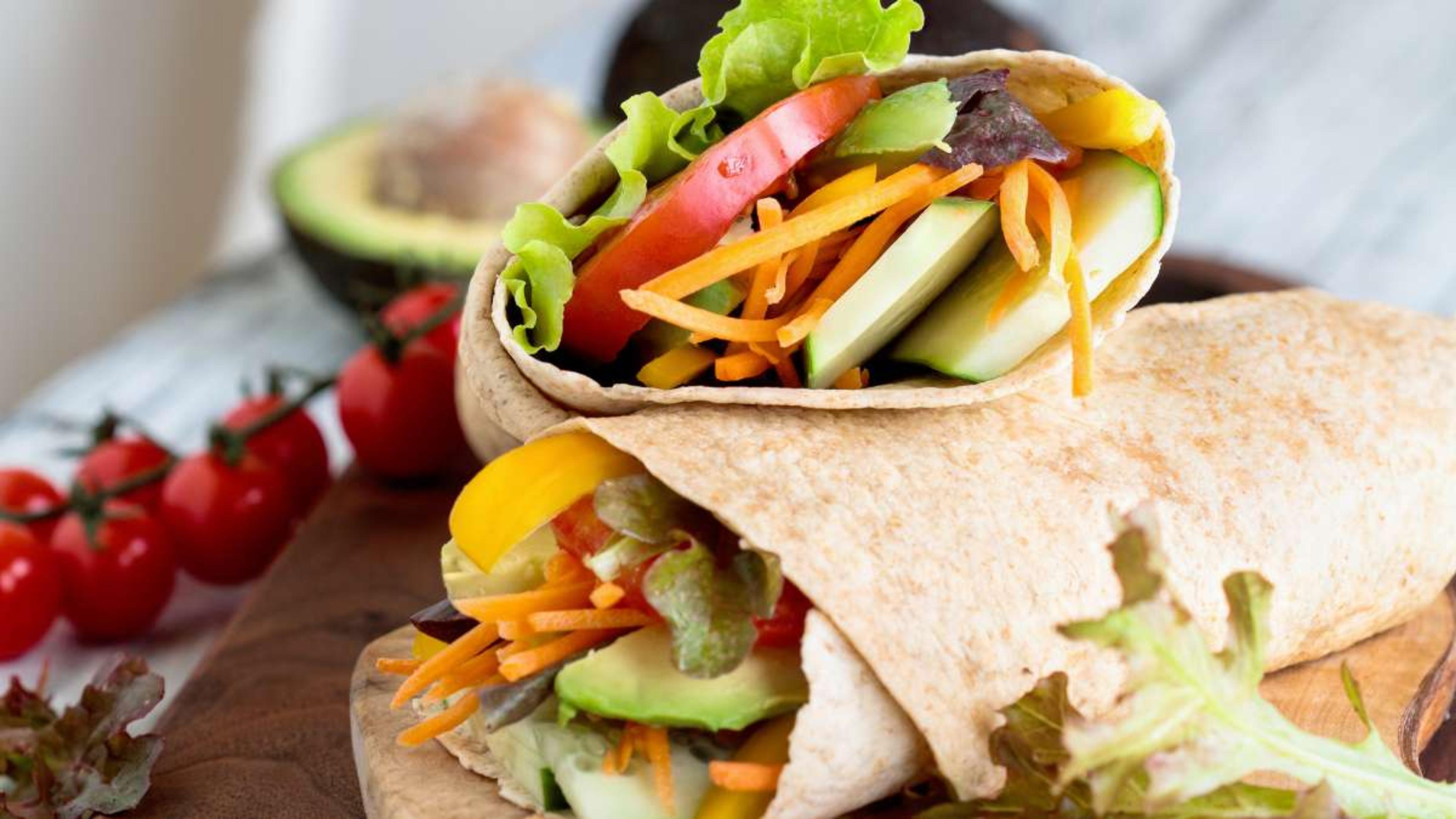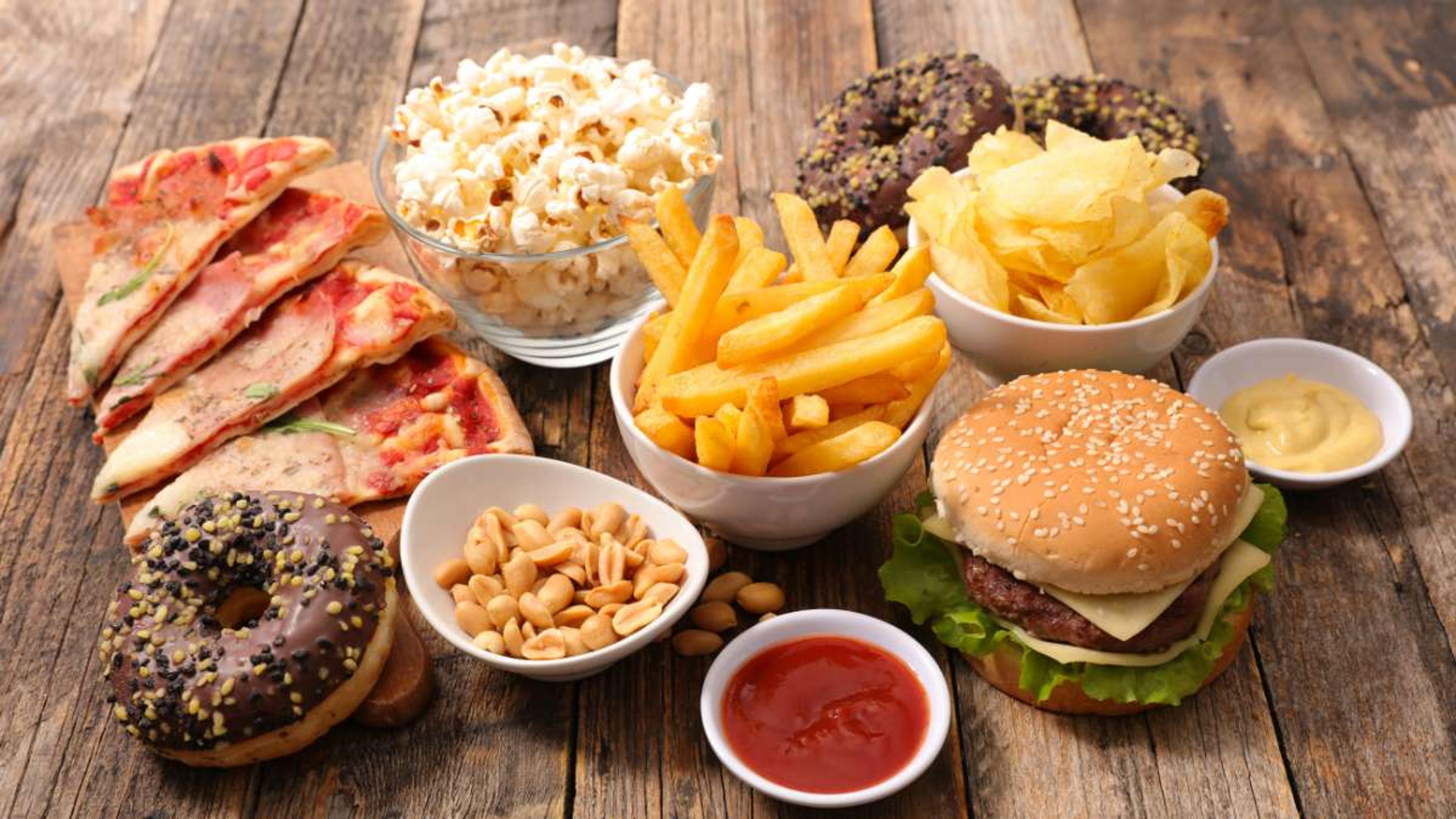Vegan Diet for Fibromyalgia: Key Considerations and Tips

- Key Takeaways
- Definition and symptoms of fibromyalgia
- Overview of veganism and its principles
- The Connection Between Diet and Fibromyalgia
- Benefits of a Vegan Diet for Fibromyalgia
- Key Elements of a Vegan Diet for Fibromyalgia
- Avoiding Potential Triggers and Problematic Foods
- Tailoring a Vegan Diet for Individual Needs
- Conclusion
- FAQs
Are you struggling with the chronic pain and fatigue of fibromyalgia? Did you know that a vegan diet could potentially alleviate some of your symptoms, leading to a significant decrease in discomfort? Fibromyalgia affects millions worldwide, but there is no effective medical treatment.
In this blog post, we will explore the health benefits of a vegan diet and how it may provide relief and improve your quality of life. Get ready to discover the power of plant-based nutrition for fibromyalgia!
Key Takeaways
- Fibromyalgia is a long-term sickness that causes pain all over the body and affects 1-3% of people, mostly women.
- A vegan diet, which cuts out all animal products including meat, fish, dairy, eggs, and honey, may help alleviate fibromyalgia symptoms.
- Studies show that a vegan diet can reduce inflammation, improve sleep quality, and lessen pain in individuals with fibromyalgia.
- High-fiber foods like fruits, vegetables, nuts, and seeds are important components of a vegan diet for fibromyalgia due to their nutrient content and potential for reducing inflammation.
Definition and symptoms of fibromyalgia
Fibromyalgia is a long-term sickness that causes pain all over the body, remains a perplexing condition with no known cure. It affects 1-3% of people, mostly women. People with fibromyalgia feel very tired and can't think clearly or remember things well. FMS is a common abbreviation used to refer to fibromyalgia.
It manifests as widespread pain throughout the body, often accompanied by extreme fatigue and cognitive difficulties such as poor memory and difficulty concentrating. While the causes of fibromyalgia are still not fully understood, researchers believe that both genetic and environmental factors play a role in its development. Arthritis, including rheumatoid arthritis, is a common comorbidity with fibromyalgia, and managing both conditions can be challenging for patients.
The symptoms of fibromyalgia can vary from person to person, but they typically include chronic pain, tender points on the body, muscle stiffness, fatigue, sleep disturbances, headaches, and mood disruptions. These symptoms can significantly impact a person's quality of life and make day-to-day activities challenging. This illness makes them hurt everywhere and it's hard for them to do everyday tasks. Sometimes they have headaches and joint stiffness too. Fibromyalgia changes their life in bad ways.
To diagnose fibromyalgia, doctors typically rely on a combination of patient history, physical examination, and excluding other possible conditions since there is no specific test for fibromyalgia.
Overview of veganism and its principles
Veganism is a way of life that cuts out all animal products. This means no meat, fish, or dairy. It also says no to eggs and honey. A vegan diet has only plant foods like fruits, vegetables, nuts, seeds, and grains.
People choose this diet for many reasons. Some do it for health while others want to protect animals or the earth. Vegan food can be beneficial in a number of ways including high fibre in diets, lower sugar, lower fat and cholesterol in your body, which can lead to a healthy diet and less disease risk such as obesity, high blood pressure or heart issues.
The Connection Between Diet and Fibromyalgia
Diet plays a significant role in fibromyalgia symptoms, and understanding its impact is crucial. Discover the debate, studies on vegan diets, and the role of nutrients for potential relief. Read more to uncover the connection between diet and fibromyalgia.

General impact of diet on fibromyalgia symptoms
Eating the right foods, including those that are not part of restrictive diets, can help with fibromyalgia symptoms. Some foods cause pain, while others fight it. The Western diet makes fibromyalgia worse because it has many things that cause inflammation.
But a vegan diet helps. It is full of healthy foods that stop inflammation and ease fibromyalgia pain. It also helps to control blood sugar levels and body weight better than other diets. Studies show that a vegan diet made people with fibromyalgia feel much better overall.
They slept well, which improved the quality of sleep, felt less stiff in the morning, and their joints didn't hurt as much with reduced pain symptoms.
The debate on the effectiveness of dietary changes
Some people say food changes, such as dietary interventions, can help with fibromyalgia. Others disagree. They think medicine is the only answer. But studies show that diet does affect this pain problem. Eating too many bad fats and sugars can make it worse.
Foods that are good for you, like fruits and veggies, may help lessen the pain. This belief starts more chats about how plant-based foods might be the answer to fibromyalgia problems, as suggested by observational studies.
The role of antioxidants, omega-3 fatty acids, and other nutrients
Antioxidants, omega-3 fatty acids, and other nutrients play an important role in managing fibromyalgia symptoms. Antioxidants help to fight oxidative stress and reduce inflammation in the body, which can contribute to pain and fatigue. Further studies are needed to fully understand the potential biological mechanisms and benefits of these nutrients for fibromyalgia patients.
Omega-3 fatty acids, found in foods like flaxseeds and walnuts, have been shown to have anti-inflammatory properties that may help alleviate fibromyalgia symptoms. Other nutrients, such as vitamin D and magnesium, are also important for maintaining overall health and supporting the immune system.
By ensuring a diet rich in these beneficial nutrients, individuals with fibromyalgia may experience improvements in their symptoms.
Systematic reviews and studies on vegan diets for fibromyalgia
Scientific studies and systematic reviews have looked into the effectiveness of vegan diets for fibromyalgia. These investigations have shown that following a plant-based diet can lead to significant improvements in symptoms and overall well-being for individuals with fibromyalgia.
They found that vegetarian and vegan diets may alleviate inflammation, reduce pain, improve sleep quality, enhance psychological well-being, and boost general health status in fibromyalgia patients.
Although more clinical trials are needed to fully understand the potential benefits of these dietary patterns, the existing evidence suggests that adopting a vegan diet may be beneficial for managing fibromyalgia symptoms.
Benefits of a Vegan Diet for Fibromyalgia
A vegan diet for fibromyalgia can potentially provide relief from symptoms, eliminate triggers, reduce inflammation, improve sleep and mental health, and enhance overall quality of life.

Potential relief of fibromyalgia symptoms
A vegan diet has the potential to provide relief for fibromyalgia symptoms. Studies have shown that following a plant-based diet can lead to significant improvements in pain, sleep quality, and joint stiffness in fibromyalgia patients.
Vegan diets are rich in antioxidants and anti-inflammatory compounds, which may help reduce inflammation and alleviate symptoms. Additionally, eliminating trigger foods like processed junk foods and gluten can further contribute to symptom improvement.
By opting for a vegan diet, individuals with fibromyalgia may experience a decrease in pain levels and an overall improvement in their quality of life.
Elimination of triggers and reduction of inflammation
Eliminating triggers and reducing inflammation are crucial components of managing fibromyalgia. By identifying and avoiding specific triggers, such as processed vegan junk foods, gluten, and excitotoxins like monosodium glutamate (MSG) and aspartame, individuals with fibromyalgia can experience a decrease in symptoms.
Additionally, following a vegan diet can help reduce inflammation in the body due to its emphasis on whole foods rich in antioxidants. Plant-based diets have been shown to lower levels of pro-inflammatory nutrients found in the Western diet, leading to potential relief from pain and improved overall health for those with fibromyalgia.
Improvement in sleep, depression, anxiety, and overall quality of life
A vegan diet can potentially improve sleep, depression, anxiety, and overall quality of life for people with fibromyalgia. Some studies have shown that following a plant-based diet can lead to significant improvements in these areas.
By eliminating trigger foods and reducing inflammation in the body, individuals may experience better sleep patterns and a reduction in symptoms of depression and anxiety. Overall, adopting a vegan lifestyle has the potential to enhance the well-being and daily functioning of those living with fibromyalgia.
Key Elements of a Vegan Diet for Fibromyalgia
Incorporate high-fiber foods, antioxidant-rich options like dark chocolate and berries, and healthy fats like extra virgin olive oil for a well-rounded vegan diet that may help alleviate fibromyalgia symptoms.
Read more to discover how these key elements can make a positive impact on your health.

High-fiber foods, fruits, vegetables, nuts, and seeds
High-fiber foods, such as fruits, vegetables, nuts, and seeds, are important components of a vegan diet for fibromyalgia. These foods provide essential nutrients and have been linked to improved overall health.
They can help with digestion and promote regular bowel movements. Fruits and vegetables are packed with antioxidants that can reduce inflammation in the body, which is beneficial for people with fibromyalgia.
Nuts and seeds are rich in healthy fats that support brain function and can help manage symptoms like depression and anxiety. Including these high-fiber foods in your diet may contribute to relieving fibromyalgia symptoms and improving your quality of life.
Incorporation of antioxidant-rich foods
Including antioxidant-rich foods like coffee, red fruits, pears, and dark chocolate in a vegan diet for fibromyalgia can be beneficial. These foods are rich in antioxidants, which help protect the body's cells from damage caused by free radicals.
The antioxidants found in these foods may have anti-inflammatory properties that can help reduce inflammation and provide relief from fibromyalgia symptoms. Additionally, certain antioxidants like flavonoids found in dark chocolate have been linked to improved mood and mental health.
So, incorporating these antioxidant-rich foods into a vegan diet can contribute to overall well-being for individuals with fibromyalgia.
The role of Extra Virgin Olive Oil (EVOO) and other healthy fats
Extra virgin olive oil (EVOO) and other healthy fats play an important role in a vegan diet for fibromyalgia. These fats provide essential nutrients and help reduce inflammation in the body.
EVOO is rich in monounsaturated fats, which have been shown to have anti-inflammatory properties. It also contains antioxidants that can protect against oxidative stress, a common factor in chronic diseases like fibromyalgia.
Other healthy fats, such as those found in nuts, seeds, and avocados, provide omega-3 fatty acids that may help alleviate symptoms associated with fibromyalgia. Including these healthy fats in a vegan diet can support overall health and contribute to the management of fibromyalgia symptoms.
Avoiding Potential Triggers and Problematic Foods

Importance of avoiding processed vegan junk foods
Processed vegan junk foods should be avoided in a vegan diet for fibromyalgia. These types of foods, which are often high in pro-inflammatory nutrients like glutamate, can worsen fibromyalgia symptoms.
By avoiding processed vegan junk foods, individuals with fibromyalgia can have better control over their blood sugar levels and reduce their intake of saturated fat and cholesterol.
Well-designed clinical trials are needed to further explore the potential benefits of avoiding processed vegan junk foods in managing fibromyalgia symptoms.
Avoid foods containing FODMAPs
FODMAPs are types of carbohydrates that can potentially trigger symptoms in people with fibromyalgia. It stands for Fermentable Oligosaccharides, Disaccharides, Monosaccharides, and Polyols. These carbohydrates are known to be poorly absorbed in the small intestine and can therefore lead to digestive issues such as bloating, gas, and abdominal pain. Foods that contain FODMAPs include certain fruits such as apples, pears, and peaches; high-lactose dairy products like milk and ice cream; wheat-based products including bread and pasta; and certain vegetables such as onions and garlic. These foods can potentially trigger symptoms in individuals with fibromyalgia.
By avoiding or reducing the consumption of FODMAP-rich foods, individuals with fibromyalgia may experience a decrease in digestive issues and find relief from symptoms such as bloating, gas, and abdominal pain.
It is important to note that not all individuals with fibromyalgia may experience the same reactions to FODMAPs. It's a highly individualized matter and may require some trial and error to determine personal triggers. Therefore, it is advisable for individuals with fibromyalgia to work closely with a healthcare professional or registered dietitian who specializes in managing fibromyalgia symptoms through dietary modifications.
For individuals with fibromyalgia, who often already experience gastrointestinal symptoms as part of their condition, avoiding FODMAPs may provide some relief. Following a vegan diet can help avoid these FODMAPs and other problematic foods that may worsen fibromyalgia symptoms.
Gluten sensitivity and its potential link to fibromyalgia
Gluten sensitivity is a condition where the body has difficulty digesting gluten, a protein found in wheat, barley, and rye. Some studies suggest that there may be a link between gluten sensitivity and fibromyalgia.
Fibromyalgia is a chronic pain condition, and research shows that dietary behavior can influence the occurrence and perception of chronic pain. The Western diet, which is high in pro-inflammatory nutrients like glutamate (found in foods containing gluten), can worsen fibromyalgia symptoms.
On the other hand, plant-based diets like vegan diets are rich in antioxidants and have been shown to alleviate symptoms of chronic diseases and inflammation. Since gluten is present in many processed foods, some people with fibromyalgia choose to follow a gluten-free or vegan diet to see if it helps improve their symptoms.
Excitotoxins like MSG and aspartame
Excitotoxins such as monosodium glutamate (MSG) and aspartame are substances that should be avoided in a vegan diet for fibromyalgia. MSG, commonly found in processed foods, can potentially trigger or worsen symptoms like headaches and joint stiffness.
Aspartame, an artificial sweetener used in many diet products, may also have similar effects on fibromyalgia symptoms. It is important to steer clear of these excitotoxins in order to minimize potential triggers and better manage fibromyalgia symptoms.
Tailoring a Vegan Diet for Individual Needs
Tailoring a vegan diet for individual needs is crucial for optimal health and symptom management. From nutritional considerations to tips for managing the diet in various settings, this section provides valuable information for those seeking personalized approaches.
Read on to discover how you can make a vegan diet work best for you.

The importance of a personalized approach
Tailoring a vegan diet to each individual's needs is crucial in managing fibromyalgia symptoms effectively. This personalized approach takes into consideration factors such as nutritional needs and vitamin B12 supplementation.
It ensures that the diet provides adequate nutrients, such as antioxidants and omega-3 fatty acids, which have been shown to improve pain, sleep quality, and overall quality of life for fibromyalgia patients.
By customizing the vegan diet according to individual preferences and requirements, it becomes easier to sustain long-term adherence and achieve optimal benefits in managing fibromyalgia symptoms.
Considerations for nutritional needs, including vitamin B12 supplementation
Meeting nutritional needs is an important aspect of following a vegan diet for fibromyalgia. Since vitamin B12 is mainly found in animal products, it's essential for individuals on a vegan diet to ensure they are getting enough of this nutrient through supplementation or fortified foods.
Vitamin B12 plays a crucial role in the production of red blood cells and nerve function, so it's vital to maintain adequate levels. Additionally, vegans should also pay attention to other nutrients like iron, calcium, omega-3 fatty acids, and protein that may require careful planning to meet recommended daily intake levels.
Consulting with a healthcare professional or registered dietitian can help ensure that all nutritional needs are being met while following a vegan diet for fibromyalgia.
Tips for managing a vegan diet in various settings like travel and dining out
- Plan ahead by researching vegan-friendly restaurants and grocery stores in the area you'll be visiting.
- Pack snacks like nuts, seeds, or dried fruits to have on hand during travel or when dining options are limited.
- Inform your travel companions or restaurant staff about your dietary preferences so they can accommodate your needs.
- Use smartphone apps or websites that provide information on vegan-friendly restaurants and menu options.
- Seek out ethnic cuisines like Indian, Thai, or Middle Eastern, which often have plant-based dishes as part of their traditional cuisine.
- Be prepared to modify menu items by omitting animal products or asking for substitutions. For example, request a vegan cheese substitute on pizza instead of regular cheese.
- Emphasize whole foods like fruits, vegetables, legumes, and whole grains when choosing meals at restaurants.
- Learn how to read food labels for hidden animal ingredients and familiarize yourself with common non-vegan additives such as gelatin or honey.
- Consider bringing portable kitchen tools like a mini blender or portable rice cooker if you'll be staying in accommodations with a kitchenette.
Conclusion
In conclusion, a vegan diet may offer potential benefits for individuals with fibromyalgia. By incorporating nutrient-rich plant-based foods and avoiding triggers, such as processed junk foods, individuals may experience relief from symptoms like pain and inflammation.
However, more research is needed to fully understand the effectiveness of a vegan diet for fibromyalgia management. It is important to work with healthcare professionals to tailor a personalized approach that meets individual nutritional needs while also considering supplementation and practical strategies for maintaining a vegan diet in various settings.
FAQs
1. Can a vegan diet help manage fibromyalgia symptoms?
A vegan diet can potentially help manage fibromyalgia symptoms by reducing inflammation and providing nutrient-rich foods that support overall health.
2. What foods should I include in a vegan diet for fibromyalgia?
In a vegan diet for fibromyalgia, it's important to include fruits, vegetables, whole grains, legumes, nuts, and seeds to ensure you get essential nutrients like vitamins, minerals, antioxidants, and omega-3 fatty acids.
3. Are there any specific foods I should avoid on a vegan diet for fibromyalgia?
On a vegan diet for fibromyalgia, it's recommended to avoid processed foods high in sugar or unhealthy fats as they may exacerbate inflammation and worsen symptoms.
4. Should I consult with a healthcare professional before starting a vegan diet for fibromyalgia?
Yes, it's always best to consult with a healthcare professional or registered dietitian before making any significant dietary changes to ensure that your nutritional needs are met and the diet is appropriate for your individual condition.

